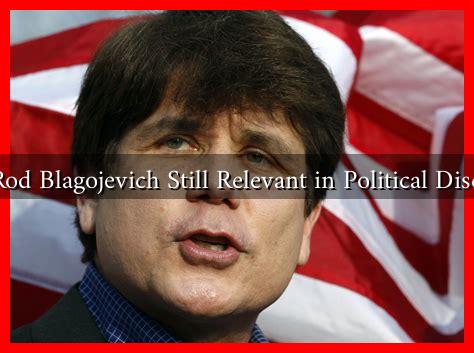-
Table of Contents
Why Is Rod Blagojevich Still Relevant in Political Discussions?
Rod Blagojevich, the former Governor of Illinois, remains a significant figure in political discussions even years after his conviction and imprisonment. His story is not just about corruption; it encapsulates broader themes of political ethics, media influence, and the complexities of the American justice system. This article explores the reasons behind Blagojevich’s enduring relevance in political discourse.
The Scandal That Shook Illinois
Blagojevich’s political career came crashing down in 2008 when he was arrested on federal corruption charges. He was accused of attempting to sell the Senate seat vacated by Barack Obama after he became President. The scandal was shocking for several reasons:
- High-profile nature: The case involved a sitting governor and a future president, drawing national attention.
- Media frenzy: Blagojevich’s colorful personality and dramatic courtroom antics made him a media sensation.
- Public outrage: The idea of a governor attempting to profit from a political appointment struck a nerve with the public.
These elements combined to create a narrative that resonated with many Americans, making Blagojevich a symbol of political corruption and ethical failure.
Lessons in Political Ethics
Blagojevich’s case serves as a cautionary tale about the importance of ethics in politics.
. His actions prompted discussions about the following:
- Accountability: The need for politicians to be held accountable for their actions.
- Transparency: The importance of transparent governance to prevent corruption.
- Public trust: How corruption erodes public trust in government institutions.
These discussions are particularly relevant today, as many Americans express skepticism about their political leaders. Blagojevich’s story serves as a reminder of the potential consequences of unethical behavior in office.
The Role of Media and Public Perception
Blagojevich’s trial and subsequent media coverage highlight the significant role that media plays in shaping public perception of political figures. His infamous quotes, such as “I have this thing and it’s f***ing golden,” became viral moments that defined his public image. This phenomenon raises important questions about:
- Media responsibility: The ethical implications of sensationalizing political scandals.
- Public engagement: How media coverage can influence public opinion and voter behavior.
- Political narratives: The power of narratives in shaping the legacy of political figures.
As media continues to evolve, Blagojevich’s case serves as a case study for understanding the intersection of politics and media.
Rehabilitation and Redemption
After serving nearly eight years in prison, Blagojevich was released in February 2020, thanks to a commutation from President Donald Trump. His release reignited discussions about rehabilitation and redemption in politics. Key points include:
- Second chances: The debate over whether individuals who have committed crimes should be allowed to return to public life.
- Public perception: How the public views former politicians who have faced legal troubles.
- Political capital: The potential for Blagojevich to leverage his experiences for political commentary or advocacy.
His return to the public eye has sparked conversations about the nature of justice and forgiveness in American society.
Conclusion: The Enduring Legacy of Rod Blagojevich
Rod Blagojevich remains a relevant figure in political discussions due to the multifaceted nature of his story. From the scandal that rocked Illinois to the lessons in political ethics, media influence, and the complexities of rehabilitation, his narrative continues to resonate with audiences. As political corruption remains a pressing issue in contemporary politics, Blagojevich’s case serves as a reminder of the importance of accountability, transparency, and the ongoing struggle for ethical governance.
In a world where political scandals are all too common, Blagojevich’s story is a powerful lens through which we can examine the state of American politics today. For further reading on political ethics and accountability, you can visit Brookings Institution.





